Filter by
# Debug Box
/var/www/htdocs/pustaka-digital/lib/SearchEngine/SearchBiblioEngine.php:688 "Search Engine Debug 🔎 🪲"
Engine Type ⚙️: "SLiMS\SearchEngine\SearchBiblioEngine"
SQL ⚙️: array:2 [ "count" => "select count(sb.biblio_id) from search_biblio as sb where sb.opac_hide=0 and ((match (sb.topic) against (:subject in boolean mode)))" "query" => "select sb.biblio_id, sb.title, sb.author, sb.topic, sb.image, sb.isbn_issn, sb.publisher, sb.publish_place, sb.publish_year, sb.labels, sb.input_date, sb.edition, sb.collation, sb.series_title, sb.call_number from search_biblio as sb where sb.opac_hide=0 and ((match (sb.topic) against (:subject in boolean mode))) order by sb.last_update desc limit 10 offset 20" ]
Bind Value ⚒️: array:1 [ ":subject" => "'+\"Learning\"'" ]

Open education : international perspectives in higher education
This insightful collection of essays explores the ways in which open education can democratise access to education for all. It is a rich resource that offers both research and case studies to relate the application of open technologies and approaches in education settings around the world. Global in perspective, this book argues strongly for the value of open education in both the developed …
- Edition
- -
- ISBN/ISSN
- 9781783742806
- Collation
- xxi, 382 p ; ill
- Series Title
- -
- Call Number
- 379.26 OPE
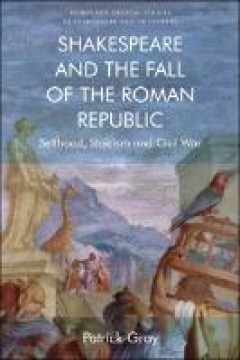
Shakespeare and the fall of the roman republic selfhood, stoicism and civil war
Explores Shakespeare's representation of the failure of democracy in ancient Rome This book introduces Shakespeare as a historian of ancient Rome alongside figures such as Sallust, Cicero, St Augustine, Machiavelli, Gibbon, Hegel and Nietzsche. It considers Shakespeare’s place in the history of concepts of selfhood and reflects on his sympathy for Christianity, in light of his reception of me…
- Edition
- 21
- ISBN/ISSN
- 9781474427487
- Collation
- xi. :321 p. :ill.
- Series Title
- -
- Call Number
- 822.33. SHA p
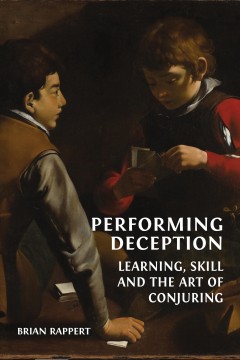
Performing deception : learning, skill and the art of conjuring
In Performing Deception, Brian Rappert reconstructs the practice of entertainment magic by analysing it through the lens of perception, deception and learning, as he goes about studying conjuring himself. Through this novel meditation on reasoning and skill, Rappert elevates magic from the undertaking of mere trickery to an art that offers the basis for rethinking our possibilities for acting i…
- Edition
- -
- ISBN/ISSN
- 9781800646926
- Collation
- xiii, 195p. : ill.
- Series Title
- -
- Call Number
- 131 BRI p

Metalearning : applications to automated machine learning and data mining
This open access book offers a comprehensive and thorough introduction to almost all aspects of metalearning and automated machine learning (AutoML), covering the basic concepts and architecture, evaluation, datasets, hyperparameter optimization, ensembles and workflows, and also how this knowledge can be used to select, combine, compose, adapt and configure both algorithms and models to yield …
- Edition
- Second Edition
- ISBN/ISSN
- 9783030670245
- Collation
- xii, 346p. : ill,
- Series Title
- -
- Call Number
- 006.31 MET m
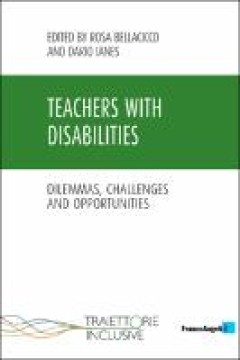
Teachers with disabilities : dilemmas, challenges and opportuties
The promotion of greater diversity in the socio-demographic profile of the teaching population is the subject of an increasing international interest. However, the perspective of teachers with disabilities/specific learning disorders (SLDs) is still poorly investigated, especially in Italy. The entry of teachers with disabilities/SLDs into the teaching profession can represent a decisive step t…
- Edition
- -
- ISBN/ISSN
- 9788835140108
- Collation
- 121 p.
- Series Title
- -
- Call Number
- 371.1 TEA t
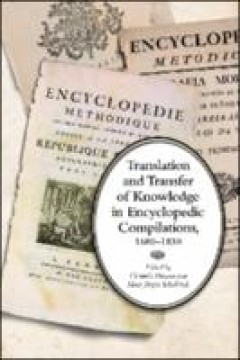
Translation and transfer of knowledge in encyclopedic compilations, 1680-1830
With a focus on the economic, social, and political impetus for producing monuments to knowledge, this volume recognizes the encyclopedic compilation as the quintessential tool of enlightenment knowledge transfer. From its modern origins in seventeenth-century France, encyclopedic compilations met the need for the dissemination of information in a more flexible format, one that eschewed the lim…
- Edition
- -
- ISBN/ISSN
- 9781487539269
- Collation
- vii, 374 p. : ill.
- Series Title
- -
- Call Number
- 030.9 DON t
Interaction: 'Samhandling' Under Risk : A Step Ahead of the Unforeseen
The authors of Interaction: ‘Samhandling’ Under Risk. A Step Ahead of the Unforeseen elucidate new views on emergency-preparedness management and understanding the unforeseen in society and learning processes by introducing the concept of ‘samhandling’, a Norwegian term that connotes interaction, collaboration and cooperation in one word. What are the basic structures of the concept of …
- Edition
- -
- ISBN/ISSN
- 9788202535025
- Collation
- 551 p. : ill.
- Series Title
- -
- Call Number
- 302 TOR i

Open world learning : research, innovation and the challenges of high-quality…
This book provides state-of-the-art contemporary research insights into key applications and processes in open world learning. Open world learning seeks to understand access to education, structures, and the presence of dialogue and support systems. It explores how the application of open world and educational technologies can be used to create opportunities for open and high-quality education.…
- Edition
- -
- ISBN/ISSN
- 9781003177098
- Collation
- XVIII, 280 p.
- Series Title
- Routledge Research in Digital Education and Educational Technology
- Call Number
- 374.4 OPE o
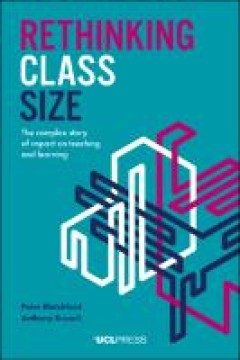
Rethinking Class Size : The complex story of impact on teaching and learning
The debate over whether class size matters for teaching and learning is one of the most enduring, and aggressive, in education research. Teachers often insist that small classes benefit their work. But many experts argue that evidence from research shows class size has little impact on pupil outcomes, so does not matter, and this dominant view has informed policymaking internationally. Here, th…
- Edition
- -
- ISBN/ISSN
- : 9781787358799
- Collation
- 328p. ; ill.
- Series Title
- -
- Call Number
- 371.251 PET r

Script effects as the hidden drive of the mind, cognition, and culture
This open access volume reveals the hidden power of the script we read in and how it shapes and drives our minds, ways of thinking, and cultures. Expanding on the Linguistic Relativity Hypothesis (i.e., the idea that language affects the way we think), this volume proposes the “Script Relativity Hypothesis” (i.e., the idea that the script in which we read affects the way we think) by offeri…
- Edition
- Literacy Studies, 21
- ISBN/ISSN
- 9783030551520
- Collation
- 251 p.: ill.
- Series Title
- -
- Call Number
- 411.019 PAE s
 Computer Science, Information & General Works
Computer Science, Information & General Works  Philosophy & Psychology
Philosophy & Psychology  Religion
Religion  Social Sciences
Social Sciences  Language
Language  Pure Science
Pure Science  Applied Sciences
Applied Sciences  Art & Recreation
Art & Recreation  Literature
Literature  History & Geography
History & Geography